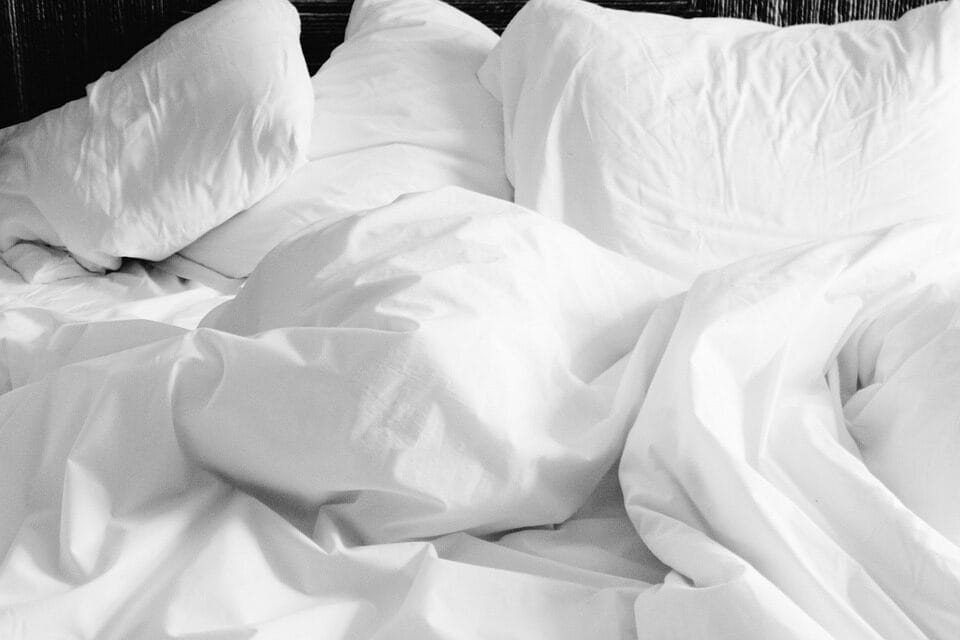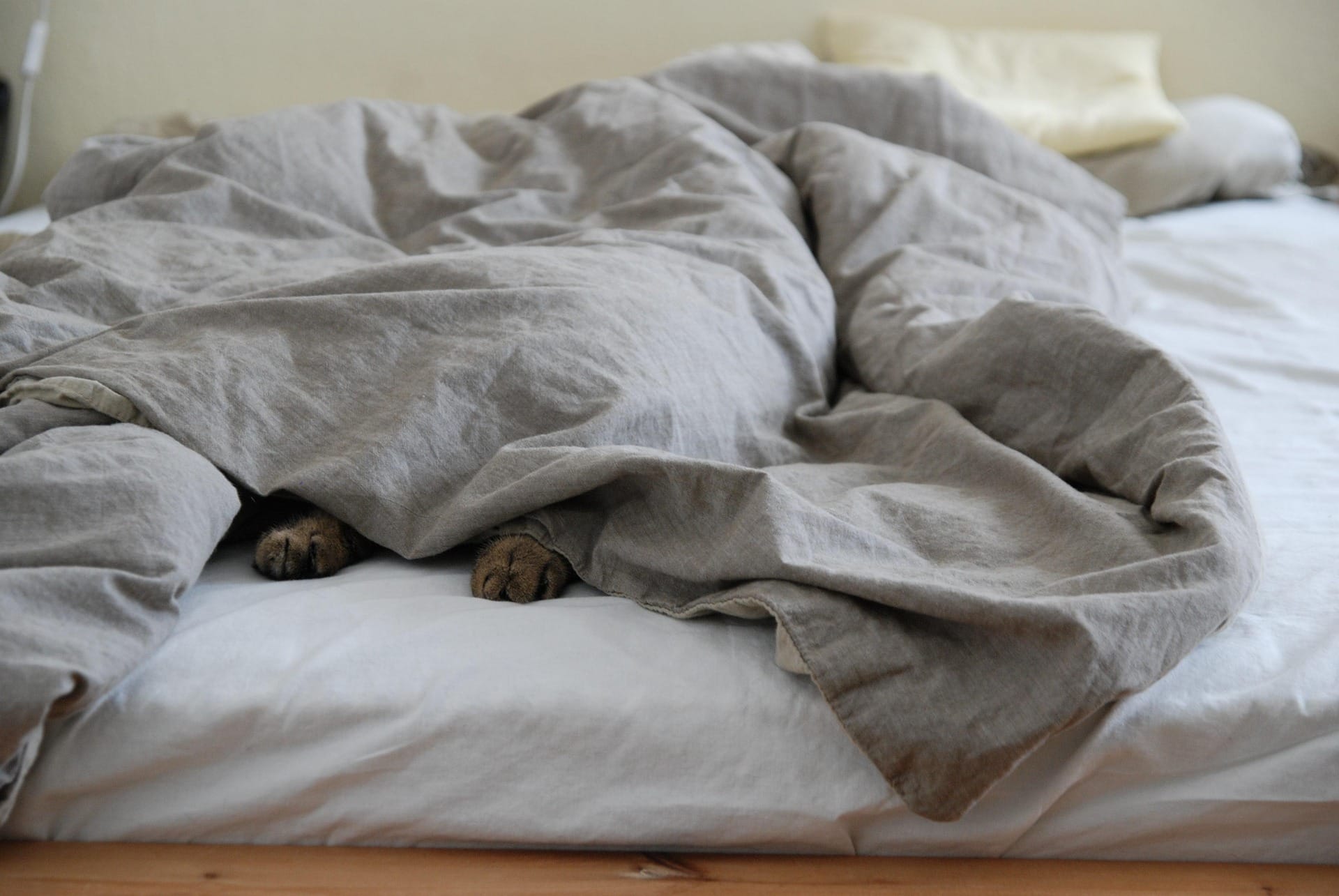On the Internet you can find a recommendation not to make the bed immediately after getting up, but to leave it uncleaned for at least half an hour - supposedly this can lead to the death of most dust mites. We checked the validity of this advice.
This unusual advice is given not only by bloggers and entertainment users. platforms, but also Russian and foreign media. Such publications appeared on websites RBC And "RIA Novosti", on the Belarusian portal "Mirror"and in a popular American magazine House Beautiful, V "Arguments and facts" And "Komsomolskaya Pravda", in publications "Fontanka.ru" And "Cold" Even “Funeral portal" Most of the publications found by “Verified” talk about the threat specifically from dust mites and a certain study by British scientists.
Although making your bed in the morning is a common household practice, in 2001 the Christmas issue of the Journal of the Canadian Medical Association (at this time of year they usually publish humorous or satirical scientific statements) declaredthat this habit poses a threat to global health. The authors argued that it leads to back problems, and conflicts between spouses over whose turn it is to make the bed cause divorce. Scientists have calculated that a person spends an average of nine months of his life (about 1% of it) making his bed and arguing about it. Experts also drew attention to the fact that a wide variety of microorganisms live in a bed, and half the weight of a duvet can consist of dead dust mites and their tiny excrement.
Dust mites are microscopic arachnids, which are widely found in homes around the world. They feed on particles of dead human and animal skin, as well as microorganisms that live in house dust. Dust mites live in warm, damp places, especially bedding, mattresses, carpets, upholstered furniture, curtains, stuffed children's toys and pet beds.
Dust mites dangerous for humans mainly because of its waste products - excrement, dead cells and chitinous shells of dead individuals, which contain allergen proteins. Tick allergens capable disrupt the integrity of the respiratory mucosa and cause inflammation. Therefore, when they are inhaled, people can develop allergic rhinitis and conjunctivitis, atopic dermatitis, and bronchial asthma.
The research behind the recommendation not to make your bed immediately after getting up is Job British scientists from the Department of Architecture at the University of Cambridge, published in 2006. It's important to note that the scientists only conducted laboratory simulations to predict how mite numbers in beds would change, rather than studying the actual numbers of arachnids in bedrooms. They were interested in whether it was possible to reduce the number of mites by changing temperature and humidity. Humidity is extremely important for the survival and reproduction of these arachnids, because they provide all the water the body needs. consume from the air by special cells. If the humidity is too low, they die.
Scientists assessed in laboratory conditions how the number of ticks changes after 21 days of exposure to a combination of a certain temperature and humidity. This time frame alone casts doubt on whether the modeling data can be interpreted as advice to wait half an hour before making the bed.
The researchers took five temperature readings—15°C, 20°C, 25°C, 30°C and 35°C—and different humidity readings, and then calculated how tick numbers changed. In seven combinations, not a single animal survived, namely, at humidity up to 50% at any temperature conditions except 20 °C. The population declined (but did not disappear completely) under the following conditions:
- at a temperature of 15 °C indoors at any humidity;
- at a temperature of 20 °C and humidity up to 68%;
- at a temperature of 25 °C and humidity up to 67%;
- at a temperature of 30 °C and humidity up to 70%;
- at a temperature of 35 °C and humidity up to 80%.
When the humidity value was exceeded, the population grew. However the humidity is above 67% in the bedroom harmful for people. Experts advise maintaining humidity in the range of 30% to 50%, with the maximum allowable level being 60%. Excessive humidity worsens asthma symptoms and can also lead to bronchitis, respiratory infections and other breathing problems. Accordingly, the optimal humidity for humans and for ticks is fundamentally different.
One would assume that a made bed would maintain a warm, moist environment longer. However, this hypothesis is refuted right in the text of the article - scientists write that the hygrothermal conditions inside the bed change relatively quickly both after going to bed and after getting up. Thus, there will be no difference in temperature and humidity if you make the bed immediately after getting up, do this after 30 minutes. or not do it at all. It is interesting that the author of the study in interview The BBC contradicts its own article: "The simple act of leaving your bed unmade during the day can remove moisture from the sheets and mattress so that mites eventually die of dehydration."

It is also significant study, in which scientists used special sensors to measure the temperature and humidity in the beds of volunteers. With the overall humidity in the room between 50% and 55%, this figure at different points in the bed never reached even 60%. The peak humidity occurred in the second hour of sleep, and this indicator returned to normal just an hour after the person got up and made the bed.
Professor Andrew Wardlaw from the British Society of Allergy and Clinical Immunology, commenting on the modeling results, notesthat it is unlikely that an unmade bed can significantly affect the overall humidity. Therefore, you need to first monitor the air humidity, and not whether the bed is made or not.
It is also worth considering that allergies can also be caused by dead mites. Even if they can be eliminated by changing the humidity and temperature in the room, allergy symptoms will persist until the room is completely cleaned. Finally, if the air humidity is high throughout the room, then an unmade bed will not dry out. Moreover, even if mites are destroyed in the bed, at high humidity they will continue to live in curtains, sofas, soft toys, etc., causing allergies in residents. Finally, term The life of dust mites is not just a few hours or even days, but two to three months. If their numbers decrease due to dry air in half an hour, it will not be by much.
Therefore, to combat dust mites you will need an integrated approach. First, the patient can be helped by desensitization - introduction of gradually increasing doses allergy-causing substance to reduce the body's negative reaction. Secondly, will be required eliminate the favorite habitats of arachnids - for example, replace the carpet with laminate or tile, remove soft toys, buy plastic or wooden furniture instead of upholstered furniture, place the mattress and pillows in special anti-allergenic covers. You can also monitor the humidity with a hygrometer, use a dehumidifier if necessary, clean regularly, and perhaps treat any leftover upholstered furniture and carpets with a mite-fighting product.
Thus, the recommendation not to make the bed immediately after getting up in order to get rid of dust mites can hardly be called working, and under any conditions. A favorable environment for ticks to reproduce is created at a humidity of about 70% or higher. The humidity in the bed is not much higher than in the air and drops quickly regardless of whether you make the bed right away or not. Therefore, it is more effective to simply monitor the air humidity in the bedroom, rather than justify morning laziness by fighting mites.
Cover image: Image by Jörn Heller from Pixabay
Read on the topic:
If you find a spelling or grammatical error, please let us know by highlighting the error text and clicking Ctrl+Enter.






